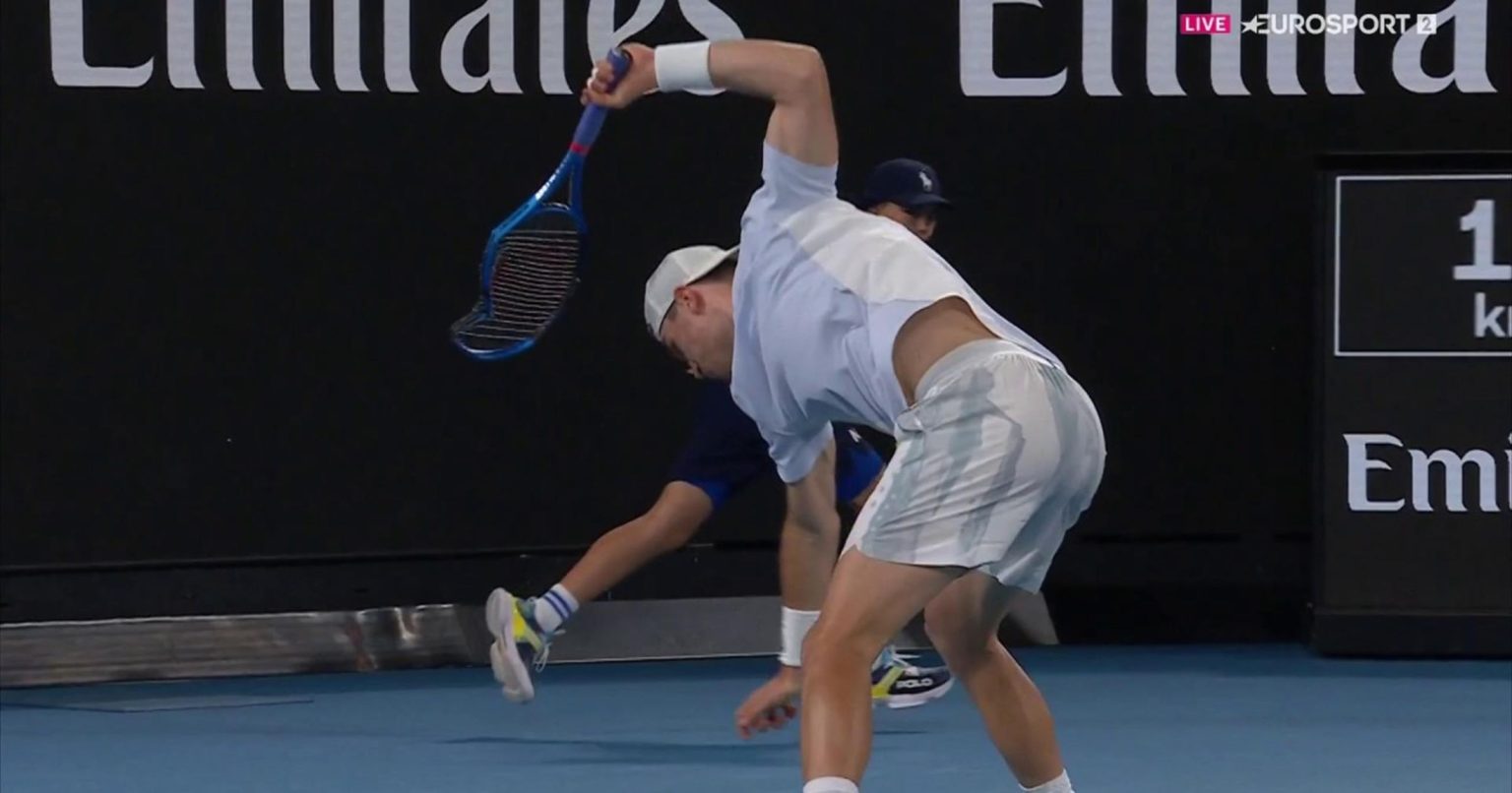Jack Draper’s on-court outburst, a furious volley of racquet smashes against the unforgiving hard court during his Australian Open clash against Aleksandar Vukic, vividly captured the immense pressure and internal struggle often faced by young athletes navigating the high-stakes world of professional tennis. This seemingly impulsive act, a visceral expression of raw frustration, transcended a mere display of temper; it laid bare the weight of expectation, the sting of unmet potential, and the complex emotional landscape that underpins the solitary battles fought on tennis courts around the globe. Draper’s explosion, while undeniably detrimental to his composure and potentially his performance, offered a glimpse into the intense psychological demands inherent in a sport where individual athletes must grapple not only with their opponents but also with their own internal demons. It became a poignant reminder that behind the polished veneer of professional athleticism lie individuals grappling with the same vulnerabilities and emotional complexities as anyone else.
The incident itself unfolded during a crucial juncture in the match. Draper, a highly touted young player carrying the hopes of British tennis fans, found himself locked in a fiercely contested battle against Vukic, a resilient opponent who refused to yield. As the match progressed, and perhaps as Draper’s initial confidence began to wane, the pressure mounted. Unforced errors crept into his game, opportunities slipped through his grasp, and the momentum subtly but inexorably shifted towards his adversary. The mounting frustration, a simmering cauldron of disappointment and self-recrimination, finally reached a boiling point. In a moment of unbridled emotion, Draper unleashed his fury upon his hapless racquet, repeatedly smashing it against the hard court until it lay mangled and useless, a symbolic representation of his crumbling composure.
This act of self-sabotage, while undeniably detrimental to Draper’s immediate prospects in the match, also underscored the fragile mental equilibrium required for success in elite-level sport. Tennis, with its inherent isolation and its relentless focus on individual performance, can be a particularly unforgiving environment. Every shot, every point, every game carries significant weight, and the cumulative pressure can take a heavy toll. Players are constantly scrutinized, their every move dissected and analyzed, with success celebrated and failure often met with harsh criticism. This intense scrutiny, combined with the relentless travel, the constant competition, and the inherent uncertainties of the sport, creates a pressure-cooker environment where emotional outbursts, like Draper’s racquet-smashing episode, can become almost inevitable.
Draper’s outburst, while certainly not unique in the annals of tennis history, serves as a stark reminder of the immense psychological challenges faced by young athletes competing on the world stage. The transition from promising junior to established professional is rarely a smooth, linear trajectory. It is often a bumpy road fraught with setbacks, disappointments, and moments of self-doubt. Young players, thrust into the spotlight and burdened with the expectations of their coaches, their families, their sponsors, and their nations, must learn to navigate this challenging landscape while simultaneously developing their physical skills, refining their tactical acumen, and honing their mental fortitude. The pressure to succeed, to live up to the hype, and to justify the investments made in their careers can be overwhelming, particularly for those still finding their footing in the cutthroat world of professional tennis.
The incident also highlights the importance of mental resilience and emotional regulation in achieving sustained success in sport. While physical talent and technical proficiency are undoubtedly crucial, the ability to manage pressure, to control emotions, and to bounce back from adversity is often the differentiating factor between good players and great champions. The mental game, as it is often called, is as important, if not more so, than the physical game. Athletes who can maintain a positive mindset, who can stay focused under duress, and who can channel their emotions constructively are far more likely to achieve their full potential than those who succumb to frustration and allow their emotions to dictate their actions. Developing these mental skills requires dedicated training, often with the assistance of sports psychologists and mental performance coaches, who can help athletes develop strategies for managing stress, building confidence, and maintaining composure under pressure.
Ultimately, Jack Draper’s racquet-smashing incident serves as a valuable learning opportunity, not just for the young player himself but also for the wider sporting community. It underscores the importance of recognizing the psychological pressures inherent in elite-level competition and the need for greater support and understanding for athletes navigating these challenges. While outbursts like Draper’s are rarely condoned, they offer a glimpse into the intense internal battles fought by athletes and highlight the critical role of mental health and emotional well-being in achieving sustained success in sport. Moving forward, it is crucial that the focus remains not just on developing physical prowess but also on fostering mental resilience, promoting emotional intelligence, and creating a more supportive and understanding environment for athletes to thrive.














